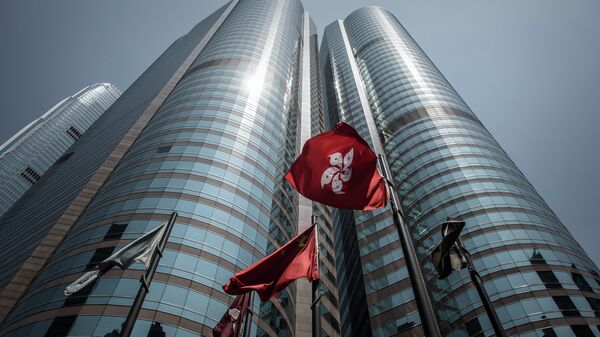Kristian Rouz — After Beijing acknowledged the necessity for bailouts in its banking sector and the complicated debt situation in its provincial budgets, also promising to launch a large-scale accommodative program, investors pulled out most Asian bourses on Wednesday. China is hoping to accelerate its slowing economy by stimulating commercial lending, which in other circumstances would stimulate the bull market, however, this time there is too much risk. Amidst other Asian factors during Wednesday's trading have been the US Fed uncertainty and the speculation that the Reserve Bank of Australia might start wrapping up its bond-buying, both weighing on regional stocks.
However, the PBOC-discussed initiative will have a positive effect on the overall Chinese economy, as banks will be purchasing more debt, increasing liquidity circulation and providing a moderate boost to other sectors of the economy.
China's banking sector suffered the largest losses today, with Industrial and Commercial Bank of China, China Construction Bank and Bank of China sliding 2.13%, 2.24% and 1.78%, respectively, as the PBOC-inflicted involuntary purchases of regional debts are expected to play against the banks' performance. Also, weaker Q1 earnings reports are expected from these financials this week.
In Australia, the S&P/ASX 200 ended the day in the red, with all 10 of its major sectors down, resulting in the index retreating 1.85%. The Australian dollar appreciated to over 0.8 USD, having surpassed the psychological threshold, as the export-oriented nation is seen as losing its global competitive edge at this point. Iron ore, one of Australia's main export earners, posted a decline in its futures on Wednesday as well. The nation's monetary authority also hinted it might end its accommodative policies in favor of more ‘normality' in this regard, as Australia's overt dependence on mainland China's industrial consumers renders the island nation vulnerable before the external shock, and China is now explicitly in trouble.
Commodities were hit in Australia today, with Fortescue Metals losing 7.35% in Sydney, and Oil Search declining 2.18%. Financials were among the losers as well, with insurance firms and banks taking a hit of between 1% and 2.5% to their stock on average.
Hong Kong's Hang Seng Index also retreated 0.15%, while the Korean Kospi Index slid 0.23%. Even stock gains in the nation's biggest exporter, Samsung Electronics Co. (+1.39%) failed to reverse today's trend.
Indonesia's stock index continued its five-day losing streak, sliding 4% amidst Australia's negative reaction to mass executions of the convicted drug-dealers in the Muslim nation. Weak corporate reports only added to the market's pessimism. In Thailand, the local central bank suddenly cut its base interest rate hoping to spur economic growth, resulting in the baht's 0.4% decline against the US dollar.



